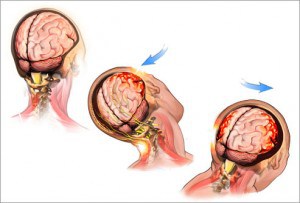
Head injury usually refers to TBI, but is a broader category because it can involve damage to structures other than the brain, such as the scalp and skull.
TBI is a major cause of death and disability worldwide, especially in children and young adults.
Males sustain traumatic brain injuries more frequently than females.
Causes of brain injuries include falls, vehicle accidents, and violence.
Prevention measures include use of technology to protect those suffering from automobile accidents, such as seat belts and sports or motorcycle helmets, as well as efforts to reduce the number of automobile accidents, such as safety education programs and enforcement of traffic laws.
– from Steven Peck, Senior Attorney at Peck Law Group
About the Author
Attorney Steven Peck has been practicing law since 1981. A former successful business owner, Mr. Peck initially focused his legal career on business law. Within the first three years, after some colleagues and friend’s parents endured nursing home neglect and elder abuse, he continued his education to begin practicing elder law and nursing home abuse law.
















